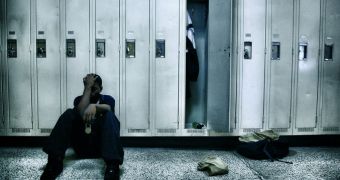Scientists have determined that children who bully their schoolmates also tend to abuse their siblings at home. The conclusion belongs to a new study, which sought to investigate the links that appeared between bullying in school and at home. The investigation also aimed at discovering causal links that binded the two, such as the age and gender of siblings. The results appear in the November 30 issue of the British Journal of Developmental Psychology, AlphaGalileo reports.
The study was conducted by scientists at the Universita’ degli Studi di Firenze, in Italy. In charge of the group was scientist Dr. Ersilia Menesini, whose mission was to determine which factors caused children to become either bullies, or victims of bullying, in the school environment. Their research group was made up of 195 children, aged between ten and 12, who all had at least a sibling. Between the study members and their brothers or sisters no age difference larger than four years existed. All of the participants were given questionnaires to gauge their activity.
The papers asked them whether they had bullied or been bullied at school, and whether they had bullied or been bullied by one of their siblings. “We found that children with older male siblings were the most victimized group. It was also the case that significantly more boys than girls told us that they bullied their sibling – who was most likely to be younger than them. It’s likely that this form of sibling bullying is all about maintaining a position of dominance,” Menesini explains the study results.
“However, for girls, bullying is mainly related to a poor quality of sibling relationship and not to birth order. In fact, high levels of conflict and low levels of empathy were significantly related to sibling bullying and sibling victimization,” the expert adds. “It is not possible to tell from our study which behaviour comes first, but it is likely that if children behave in a certain way at home, bullying a sibling for instance, if this behaviour goes unchecked they may take this behavior into school,” Menesini concludes.

 14 DAY TRIAL //
14 DAY TRIAL //